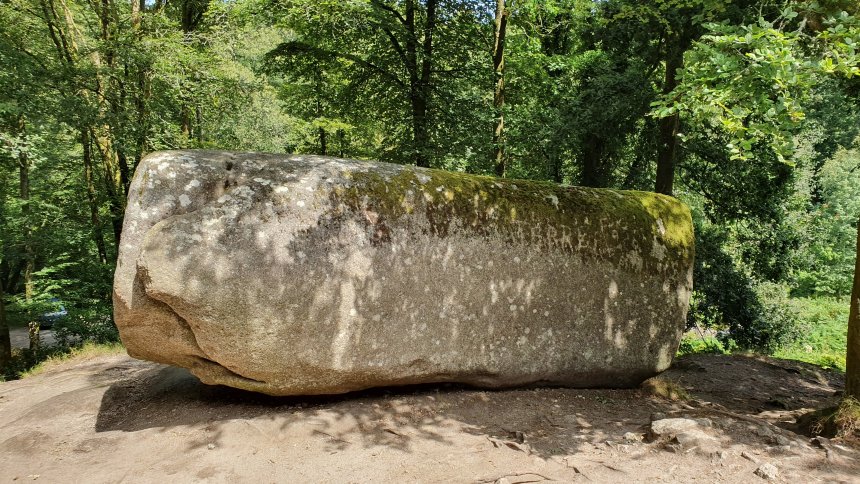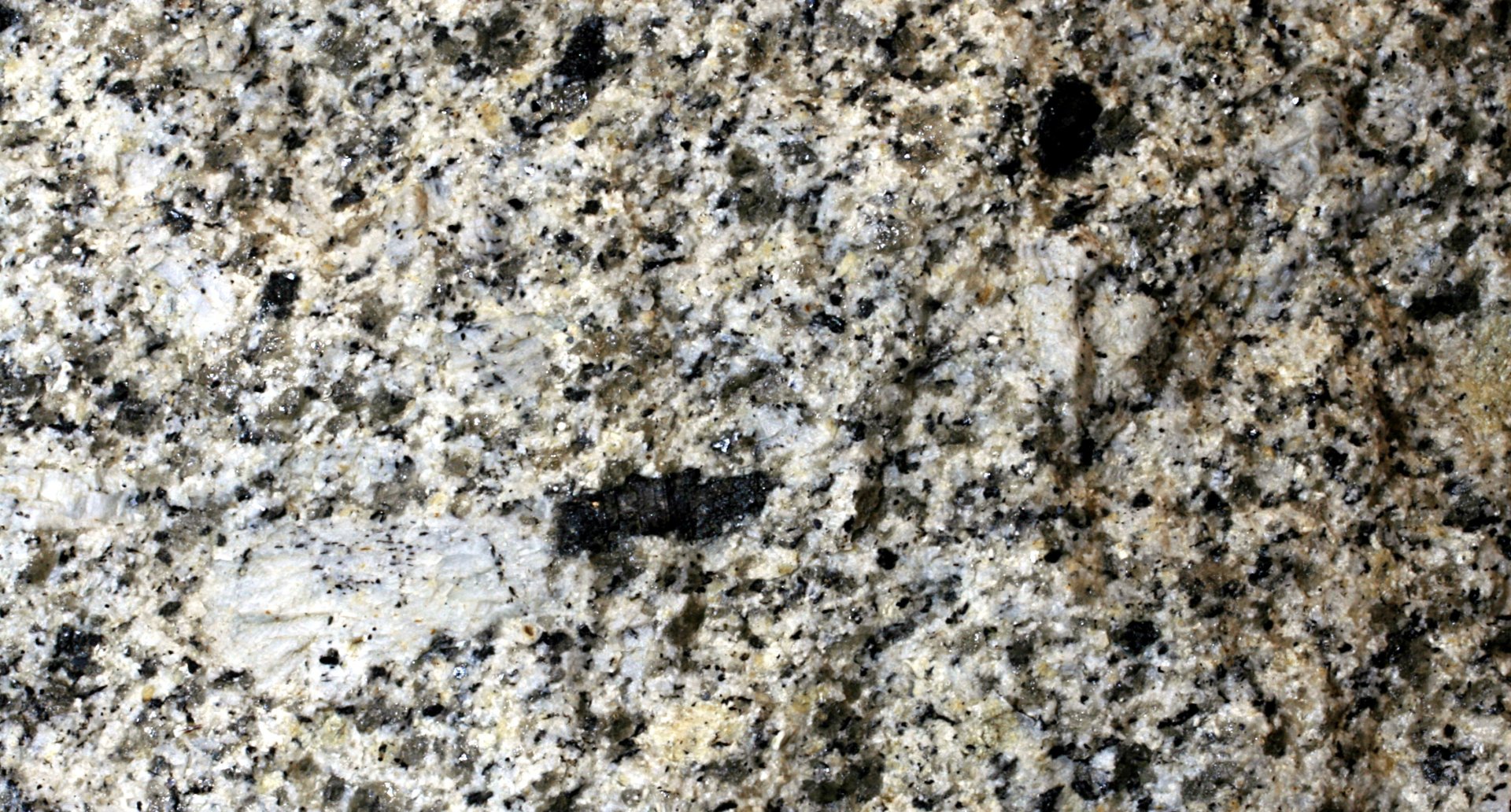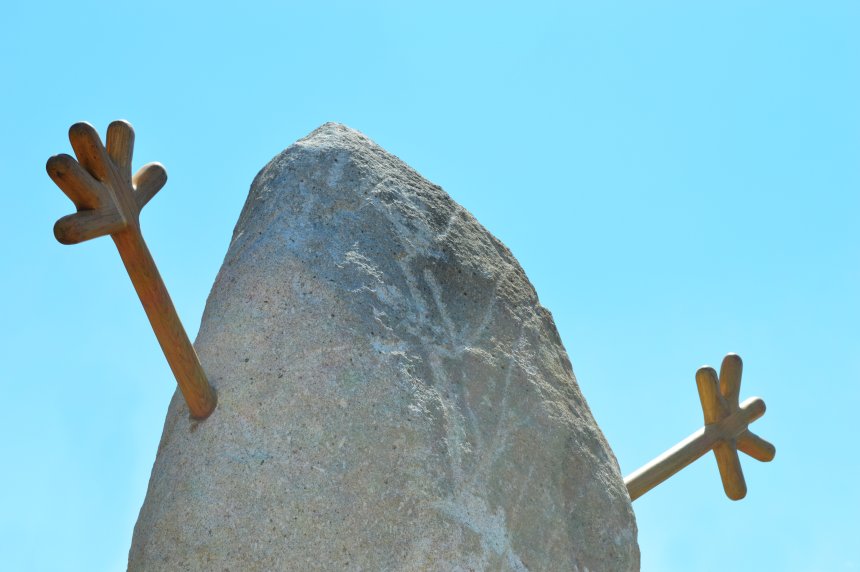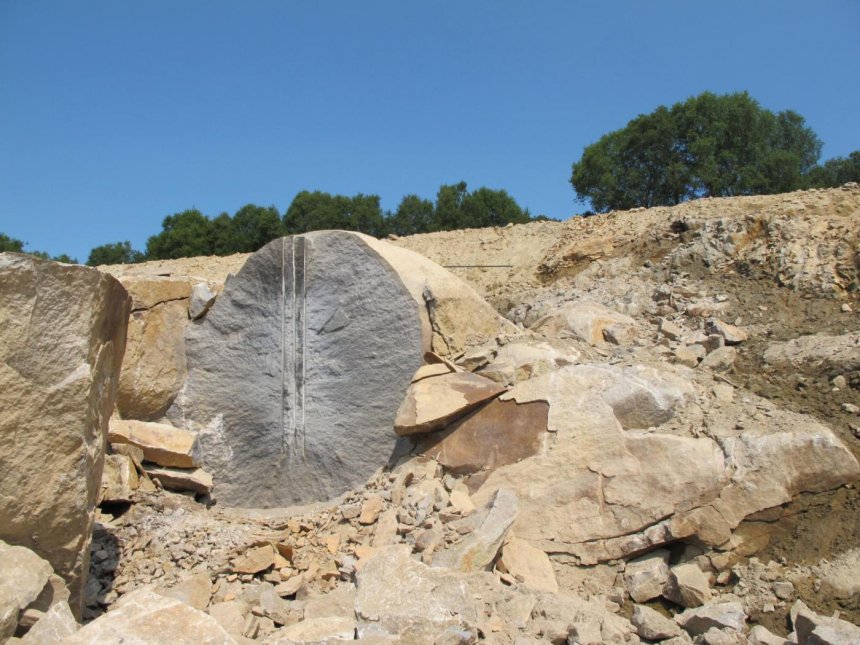Stone : cordierit-bearing granite
Type : plutonic magmatic rock
Age : 336 million years
Quarry : Roz Perez, Brennilis (Finistère)
Monsieur Caillou
Monsieur Caillou is a naturally rounded boulder selected from the quarry. It shares the same origin as the blocks that make up the granite chaos of Huelgoat. These large rounded blocks were not shaped by the sea but underground, through a long process known as spheroidal weathering (see installation 2).
The “Trembling Rock” in the Huelgoat forest is one of the most famous features of this Breton chaos. This massive 137-ton boulder naturally rocks on a balance point.
Origin of the Granite
The Huelgoat granite formed during the creation of the Variscan (or Hercynian) mountain range. It is distinguished by the presence of large crystals of potassium feldspar and cordierite. It also contains plagioclase (another type of feldspar), black micas (biotite), and, of course, quartz. The presence of cordierite is a signature of an aluminum-rich magma, originating from the melting of the continental crust.
Extraction: Past and Present
Granite from Huelgoat has been quarried since the 15th century. The blocks in the chaos still bear scars from this extractive activity. Stonecutters nearly wiped out these giants! In the late 19th century, the local population opposed the destruction of their natural heritage. Today, granite is extracted from a modern quarry and sold for various uses: roads, buildings, indoor and outdoor design, funerary monuments, etc.

The Legend of the Chaos
Gargantua, the friendly giant made famous by François Rabelais, once stopped in Huelgoat. Hungry, he asked for food, and the locals offered him a bowl of buckwheat porridge. Disappointed by the meager offering and angry, he continued on his way. Upon reaching Léon, a much wealthier region, he finally satisfied his hunger. But, still resentful, he decided to take revenge. While walking along the coast, he picked up huge rocks shaped by the sea and hurled them over the Arrée Mountains, where they landed in the “high forest” along the Silver River (Rivière d’Argent).


